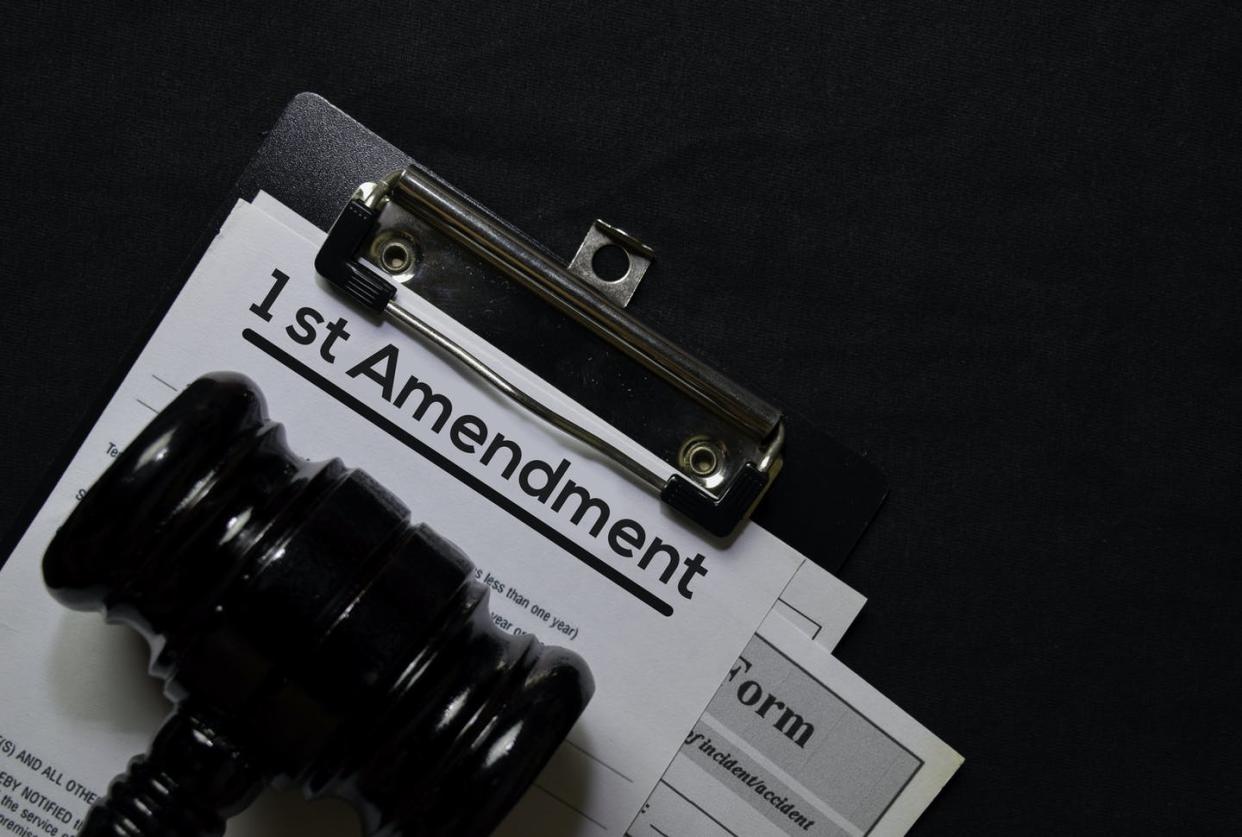Dominion, Smartmatic lawsuits against Fox News may not threaten freedom of the press

Free speech advocates have long believed that suing a news organization threatens free speech. Democracy needs a press to be free to report, without fear or favor, the facts as it sees them.
But recent legal actions against news organizations indicate that the First Amendment provides sufficient free speech protection, even when punishing lawsuits are filed against the press.
Falsehoods have flooded public discourse in recent years through outlets including talk radio, cable TV channels and social media such as Facebook, YouTube, Twitter, Reddit and Instagram. The proliferation of these falsehoods has seemingly normalized the practice of spreading lies.
Dominion Voting Systems sued Fox News in a

Free speech advocates have long believed that suing a news organization threatens free speech. Democracy needs a press to be free to report, without fear or favor, the facts as it sees them.
But recent legal actions against news organizations indicate that the First Amendment provides sufficient free speech protection, even when punishing lawsuits are filed against the press.
Falsehoods have flooded public discourse in recent years through outlets including talk radio, cable TV channels and social media such as Facebook, YouTube, Twitter, Reddit and Instagram. The proliferation of these falsehoods has seemingly normalized the practice of spreading lies.
Dominion Voting Systems sued Fox News in a

Free speech advocates have long believed that suing a news organization threatens free speech. Democracy needs a press to be free to report, without fear or favor, the facts as it sees them.
But recent legal actions against news organizations indicate that the First Amendment provides sufficient free speech protection, even when punishing lawsuits are filed against the press.
Falsehoods have flooded public discourse in recent years through outlets including talk radio, cable TV channels and social media such as Facebook, YouTube, Twitter, Reddit and Instagram. The proliferation of these falsehoods has seemingly normalized the practice of spreading lies.
Dominion Voting Systems sued Fox News in a

With in-person instruction becoming the exception rather than the norm, 54% of parents with school-age children expressed concern that their children could fall behind academically, according to a poll conducted over the summer of 2020. Initial projections from the Northwest Evaluation Association, which conducts research and creates commonly used standardized tests, suggest that these fears are well-grounded, especially for children from low-income families.
Based on the association’s findings and my own research regarding academic achievement and socioeconomic status, I believe it’s likely, based on these early projections, that the widespread and rapid switch to remote schooling will have negative long-term academic consequences.
One possibility is that the share of students who end up repeating at least one grade at some point could rise due to this unprecedented disruption.
According to government data collected in 2018, only about 6% of U.S. students had to repeat a grade before graduating from high school prior to the COVID-19 pandemic.
Any potential effort to make students repeat a grade when they can’t demonstrate they have learned enough to advance to the next one would build on some recent precedents.
Starting in 2001 with the No Child Left Behind Act, reading proficiency by third grade became one of the federal mandates for schools to receive designated streams of federal funding.
This federal legislation, combined with research indicating that children who couldn’t yet read fared better when they repeated a grade, brought about a wave of state-level legislation. So far, a total of 16 states have enacted laws that prevent students from moving on from third grade until they are considered proficient on standardized reading tests.
These state laws vary. Some states, like Florida, require students who aren’t reading well enough to repeat third grade altogether. Others, such as Minnesota, let children move onto fourth grade and provide them with supplemental reading assistance until they can read at what the state deems to be a third-grade level. In practice, students typically don’t repeat more than one grade.
I consider it likely that the academic consequences of the extended period of remote learning that began in March 2020 will be unequal. These consequences are bound to fall more heavily on students who are growing up facing persistent economic hardship.
The practice of making children who are struggling to learn how to read repeat third grade, however well-intentioned, can be risky. For example, students who repeat a grade can feel stigmatized and less motivated to learn.
Therefore, I believe parents, educators and policymakers will all need to try to address the inevitable gaps in learning bound to arise from widespread remote learning during the pandemic.
[Like what you’ve read? Want more? Sign up for The Conversation’s daily newsletter.]
This article is republished from The Conversation, a nonprofit news site dedicated to sharing ideas from academic experts. It was written by: Pamela Davis-Kean, University of Michigan.
Read more:
Until teachers feel safe, widespread in-person K-12 schooling may prove impossible in US
With kids spending more waking hours on screens than ever, here’s what parents need to worry about
Pamela Davis-Kean receives funding from the National Science Foundation and the National Institute for Child Health and Development (NICHD).


